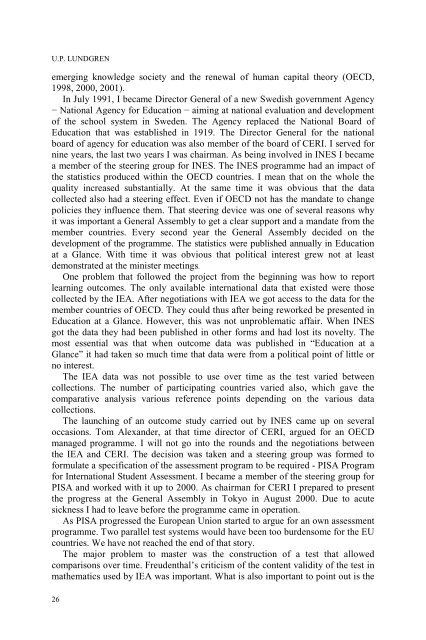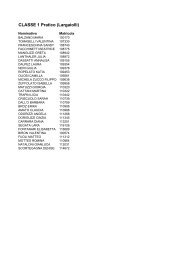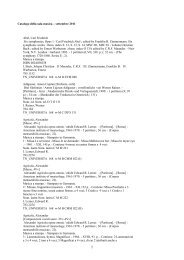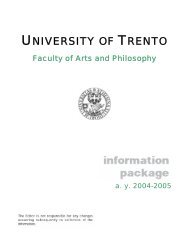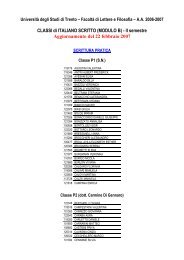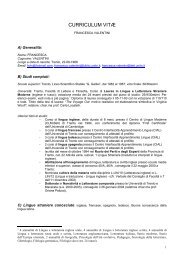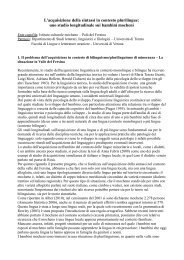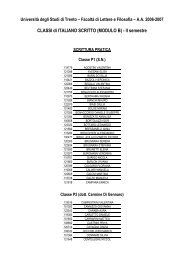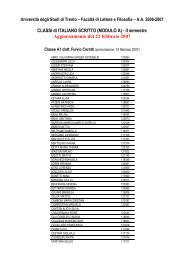PISA Under Examination - Comparative Education Society in ...
PISA Under Examination - Comparative Education Society in ...
PISA Under Examination - Comparative Education Society in ...
Create successful ePaper yourself
Turn your PDF publications into a flip-book with our unique Google optimized e-Paper software.
U.P. LUNDGREN<br />
emerg<strong>in</strong>g knowledge society and the renewal of human capital theory (OECD,<br />
1998, 2000, 2001).<br />
In July 1991, I became Director General of a new Swedish government Agency<br />
− National Agency for <strong>Education</strong> − aim<strong>in</strong>g at national evaluation and development<br />
of the school system <strong>in</strong> Sweden. The Agency replaced the National Board of<br />
<strong>Education</strong> that was established <strong>in</strong> 1919. The Director General for the national<br />
board of agency for education was also member of the board of CERI. I served for<br />
n<strong>in</strong>e years, the last two years I was chairman. As be<strong>in</strong>g <strong>in</strong>volved <strong>in</strong> INES I became<br />
a member of the steer<strong>in</strong>g group for INES. The INES programme had an impact of<br />
the statistics produced with<strong>in</strong> the OECD countries. I mean that on the whole the<br />
quality <strong>in</strong>creased substantially. At the same time it was obvious that the data<br />
collected also had a steer<strong>in</strong>g effect. Even if OECD not has the mandate to change<br />
policies they <strong>in</strong>fluence them. That steer<strong>in</strong>g device was one of several reasons why<br />
it was important a General Assembly to get a clear support and a mandate from the<br />
member countries. Every second year the General Assembly decided on the<br />
development of the programme. The statistics were published annually <strong>in</strong> <strong>Education</strong><br />
at a Glance. With time it was obvious that political <strong>in</strong>terest grew not at least<br />
demonstrated at the m<strong>in</strong>ister meet<strong>in</strong>gs.<br />
One problem that followed the project from the beg<strong>in</strong>n<strong>in</strong>g was how to report<br />
learn<strong>in</strong>g outcomes. The only available <strong>in</strong>ternational data that existed were those<br />
collected by the IEA. After negotiations with IEA we got access to the data for the<br />
member countries of OECD. They could thus after be<strong>in</strong>g reworked be presented <strong>in</strong><br />
<strong>Education</strong> at a Glance. However, this was not unproblematic affair. When INES<br />
got the data they had been published <strong>in</strong> other forms and had lost its novelty. The<br />
most essential was that when outcome data was published <strong>in</strong> “<strong>Education</strong> at a<br />
Glance” it had taken so much time that data were from a political po<strong>in</strong>t of little or<br />
no <strong>in</strong>terest.<br />
The IEA data was not possible to use over time as the test varied between<br />
collections. The number of participat<strong>in</strong>g countries varied also, which gave the<br />
comparative analysis various reference po<strong>in</strong>ts depend<strong>in</strong>g on the various data<br />
collections.<br />
The launch<strong>in</strong>g of an outcome study carried out by INES came up on several<br />
occasions. Tom Alexander, at that time director of CERI, argued for an OECD<br />
managed programme. I will not go <strong>in</strong>to the rounds and the negotiations between<br />
the IEA and CERI. The decision was taken and a steer<strong>in</strong>g group was formed to<br />
formulate a specification of the assessment program to be required - <strong>PISA</strong> Program<br />
for International Student Assessment. I became a member of the steer<strong>in</strong>g group for<br />
<strong>PISA</strong> and worked with it up to 2000. As chairman for CERI I prepared to present<br />
the progress at the General Assembly <strong>in</strong> Tokyo <strong>in</strong> August 2000. Due to acute<br />
sickness I had to leave before the programme came <strong>in</strong> operation.<br />
As <strong>PISA</strong> progressed the European Union started to argue for an own assessment<br />
programme. Two parallel test systems would have been too burdensome for the EU<br />
countries. We have not reached the end of that story.<br />
The major problem to master was the construction of a test that allowed<br />
comparisons over time. Freudenthal’s criticism of the content validity of the test <strong>in</strong><br />
mathematics used by IEA was important. What is also important to po<strong>in</strong>t out is the<br />
26


